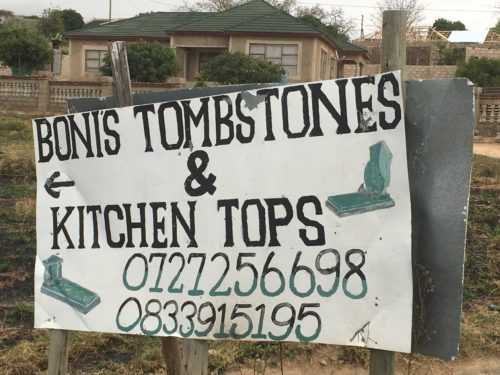
I asked our driver to turn around and go back just so I could take a photo of this sign. What an odd business.
Vuyani Lodge and Kruger National Park, South Africa: Damn!
We spent three nights at Vuyani Lodge, a private game reserve located adjacent to Kruger National Park, a 3 million acre wonderland of wild animals. We had morning and afternoon group safaris at Vuyani and also had a full day private safari in Kruger.
The accommodations were wonderful, the service was unparalleled, and the safaris were dramatic and exciting and full of fun.
Here’s some of what we saw (no words necessary on most of them, but I’ve added a few details on a couple of the photos below:
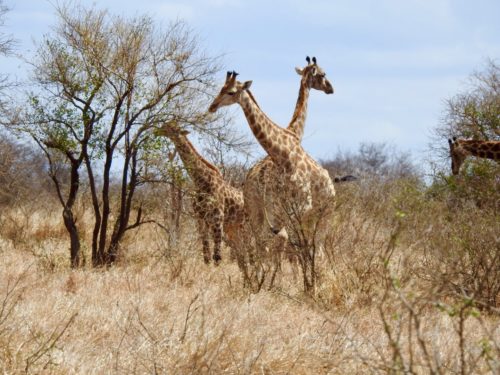
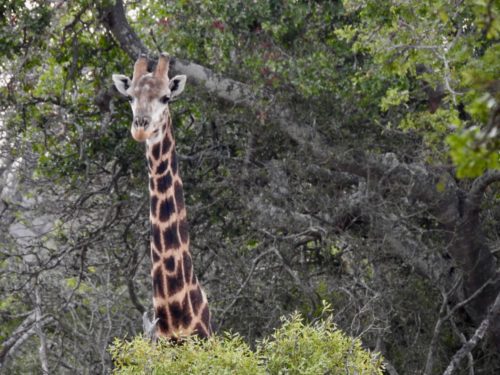
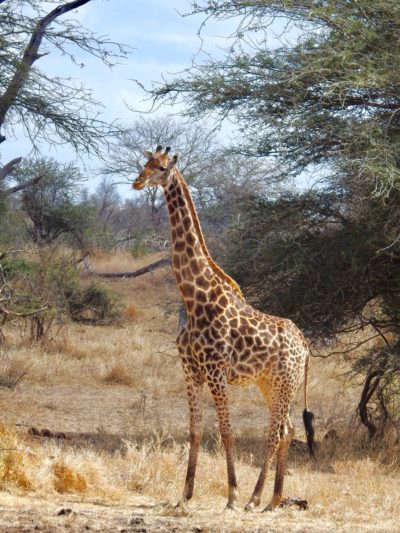
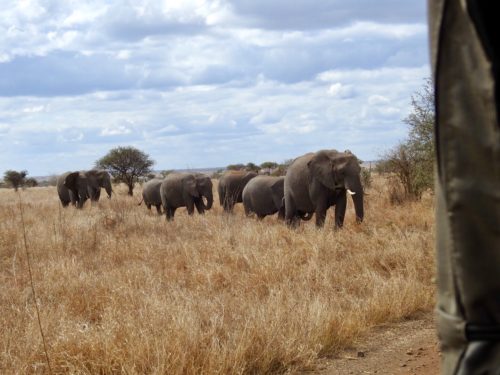 This herd of elephants walked single file across the road in front of us, went down an embankment, across the river, and up an embankment on the other side. No idea where they were going, but they were definitely on their way somewhere. Funny thing was, they acted as if we didn’t exist. We didn’t even merit a glance from these behemoths.
This herd of elephants walked single file across the road in front of us, went down an embankment, across the river, and up an embankment on the other side. No idea where they were going, but they were definitely on their way somewhere. Funny thing was, they acted as if we didn’t exist. We didn’t even merit a glance from these behemoths.
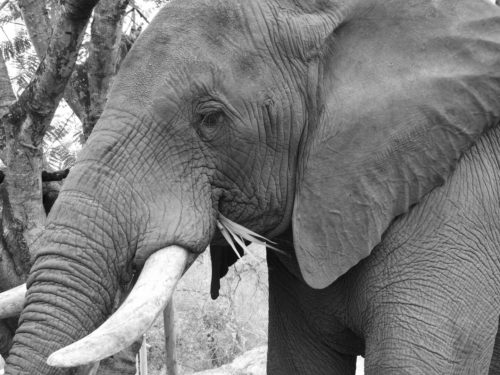
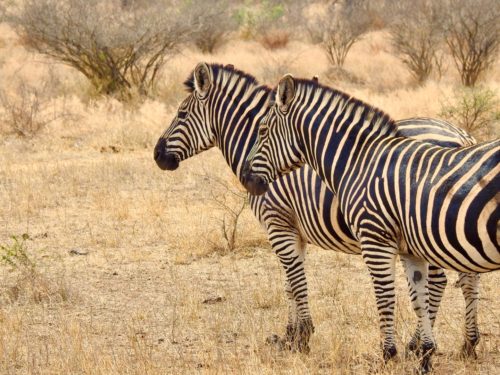
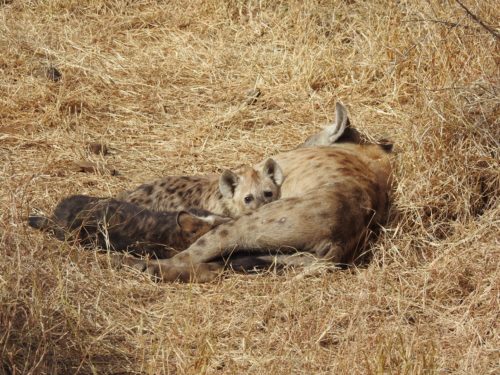 In case you can’t tell, this is a brown-spotted hyena nursing her pups. She was about ten feet off the road and she, like the elephants, completely ignored us. You can see, though, that one of her pups couldn’t resist taking a look.
In case you can’t tell, this is a brown-spotted hyena nursing her pups. She was about ten feet off the road and she, like the elephants, completely ignored us. You can see, though, that one of her pups couldn’t resist taking a look.
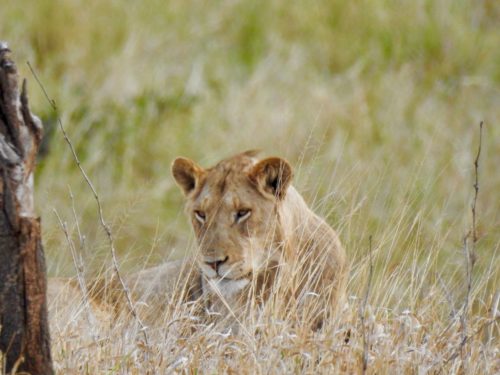
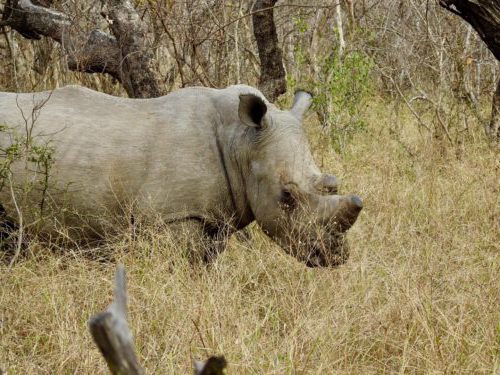 We arrived at Vuyani in the afternoon. That morning, one of the guests had taken a great video of a rhino charging their safari truck. He stopped just short of colliding with the truck, but succeeded in scaring the hell out of everyone riding in it.
We arrived at Vuyani in the afternoon. That morning, one of the guests had taken a great video of a rhino charging their safari truck. He stopped just short of colliding with the truck, but succeeded in scaring the hell out of everyone riding in it.
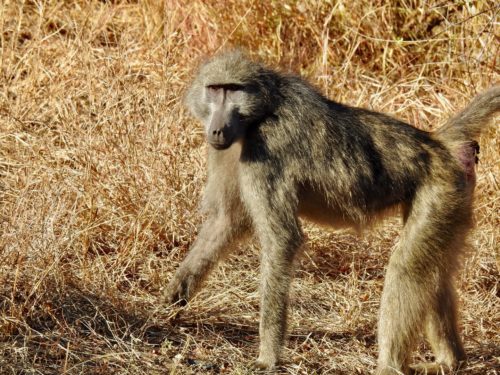 We saw a band of about 30 baboons hiking single file across a dry river bed. The little guy below was having a ball learning to climb a reed that was too thin to support his weight.
We saw a band of about 30 baboons hiking single file across a dry river bed. The little guy below was having a ball learning to climb a reed that was too thin to support his weight.
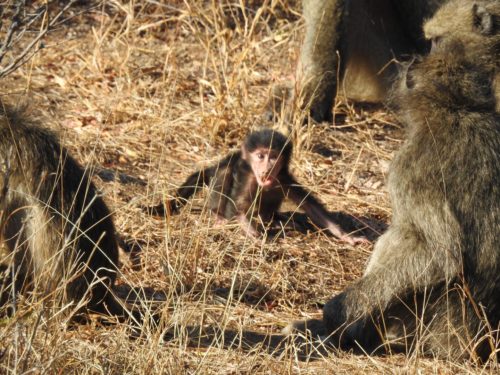
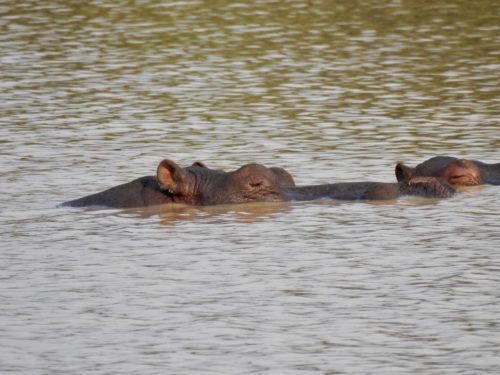
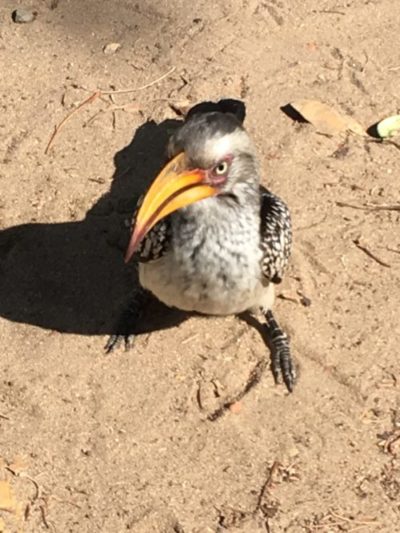 This is a yellow-billed something or other (I couldn’t keep track of all the names our guide threw at us during the course of the day.) He was a cheeky little devil who tried to steal our lunch.
This is a yellow-billed something or other (I couldn’t keep track of all the names our guide threw at us during the course of the day.) He was a cheeky little devil who tried to steal our lunch.
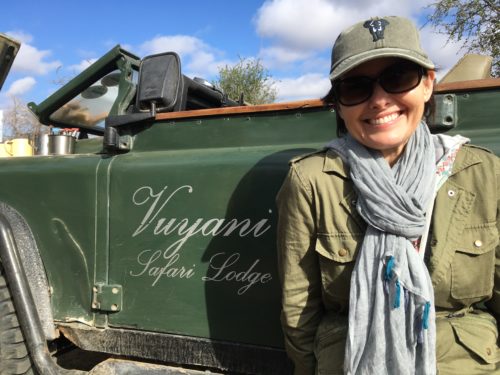 Jamie sitting on the running board of our Vuyani Safari truck.
Jamie sitting on the running board of our Vuyani Safari truck.
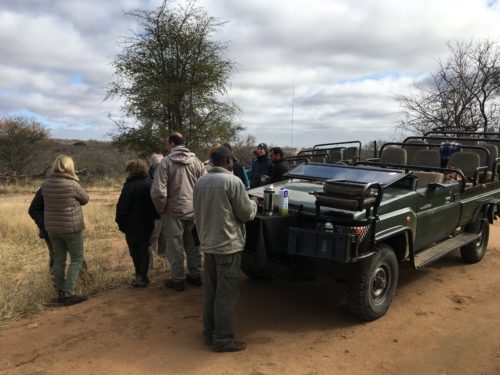 After hours of bouncing around in the scrub, a tea and coffee break is just what we needed.
After hours of bouncing around in the scrub, a tea and coffee break is just what we needed.
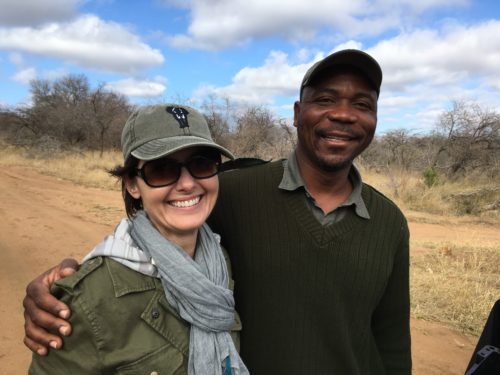 Jamie and Hendrik, our Vuyani Lodge guide, during the morning coffee and tea break.
Jamie and Hendrik, our Vuyani Lodge guide, during the morning coffee and tea break.
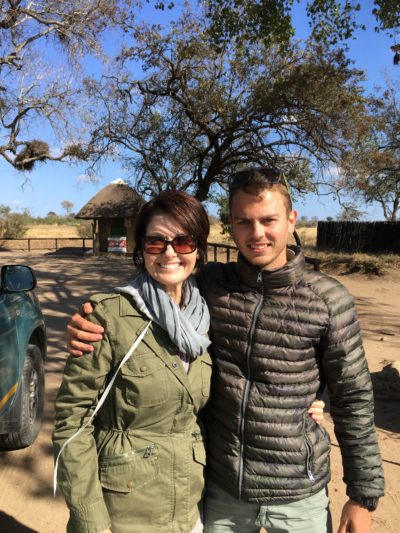 Jamie and Frank, our guide at Kruger National Park. I asked Frank how long his family has been in South Africa and he said they go back so far that no one knows.
Jamie and Frank, our guide at Kruger National Park. I asked Frank how long his family has been in South Africa and he said they go back so far that no one knows.
Vuyani Lodge, South Africa: Here’s something you don’t see every day
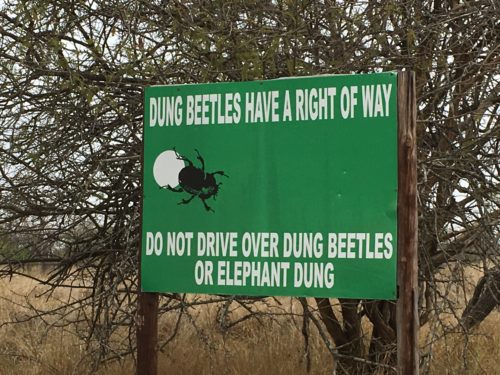
I cannot begin to explain this sign we saw at the entrance to the wild animal reserve that surrounds Vuyani. I asked our safari guide to explain it and he stuttered and stammered and made up an answer that he eventually got lost in the middle of.
I finally laughed and said, “You don’t know what it means, do you?”
“No,” he said. “It is a mystery to me, too.”
London, England: Well, that certainly seems excessive
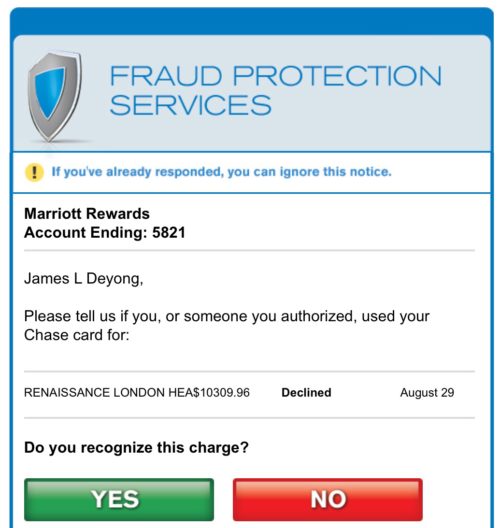
Have you ever found a fraudulent charge on your credit card statement? I have. A couple months ago I had a charge from some merchant I’d never heard of in a town I’d never been to. It was an insignificant charge, just a couple bucks or so, but I found it because I go over each of my credit cards statements with a fine tooth comb in order to maintain my reputation as one of the world’s cheapest men.
When I called the fraud department at my credit card company, they told me that the crooks often make very small fraudulent charges like this just to test the water, just to see if it gets noticed. Imagine how much money they could make if they do that millions of times per month on millions of accounts.
That’s the set-up. Here’s the story:
We flew from Madeira to London yesterday afternoon and we’re leaving for Johannesburg, South Africa tonight. So we needed a hotel for just twenty-four hours. We chose a very nice one we could pay for with frequent flyer points — a Marriott very near Heathrow.
But early this morning we received a fraud alert email from our credit card company. It seems that the hotel had attempted to bill us $10,309.96.
To repeat, ten thousand three hundred nine dollars and ninety-six cents.
Since the room had been paid for with frequent flyer points, $10,309.96 seemed a bit excessive for the dinner for two we had billed to our room.
We went down to the front desk to discuss it and the clerk’s eyes bugged out when she saw how much the hotel attempted to charge our credit card.
After a bit of investigation and a couple phone calls, she figured out that the Marriott computer had gone a bit haywire at the end of the day and had put all the room charges for all that night’s guests on our credit card.
She was embarrassed. We were relieved.
But we’d like to send a big thanks out to our credit card company for declining the charge.
Funchal, Madeira: Paradise in the Atlantic
I would have headlined this story “Beauty and the Beach,” but Madeira, as beautiful a tropical isle as you could ever hope to find, has no beaches.
That’s not strictly true. It has a number of beaches, but they are all covered with black boulders the size of bowling balls. Well, that is also not strictly true, because it does have two white sand beaches, but all that white sand was imported from Morocco in order to cover up the bowling ball-sized boulders.
Beaches or not, we love Madeira. Absolutely love it. I keep saying that it must be what Hawaii was like before jet airliners started bringing hordes of poorly-dressed tourists to its shores. Jamie keeps saying that she wants to move here and learn Portuguese. We both keep saying we want to renovate one of the beautiful but dilapidated downtown buildings and turn it into a second home.
In addition to those gorgeous old buildings, Madeira has beautiful weather, stunning scenery, friendly people, great food, and a certain je ne sais quoi. (No, I do not actually know the precise meaning of that French phrase, but I am certain that using it as I did will lead you to believe that I do.)
Instead of Hawaii’s 1.5 million people, Madeira has a mere 250,000 residents and half of them live in Funchal, which, of course, makes it a remarkably livable town.
Madeira is Oahu without the crowds, Maui without the Walmart, Tahiti without the French.
As far as we can tell, Madeira has everything you could want in a tropical paradise. With the exception of those beaches. Here are photos to prove it.
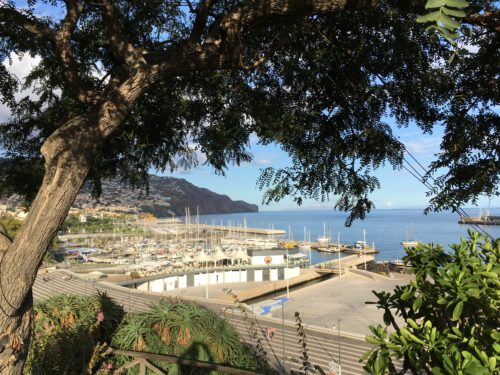
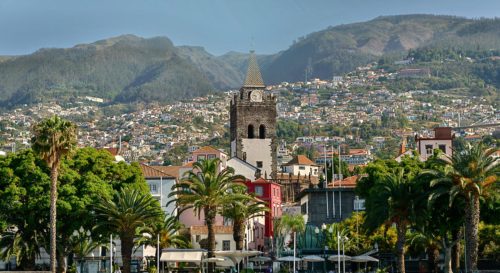
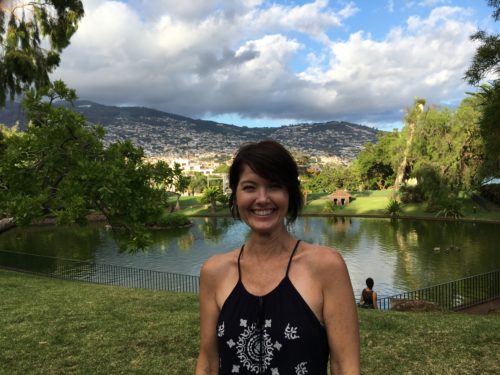
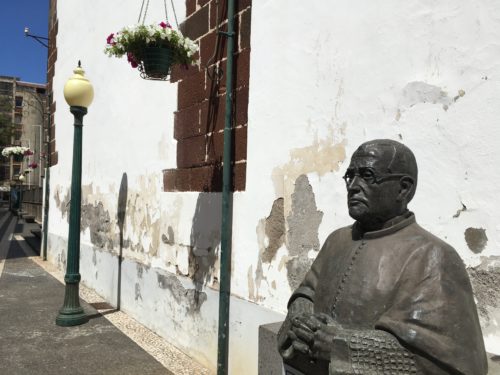
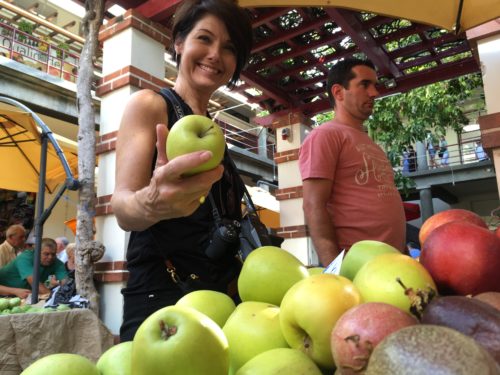
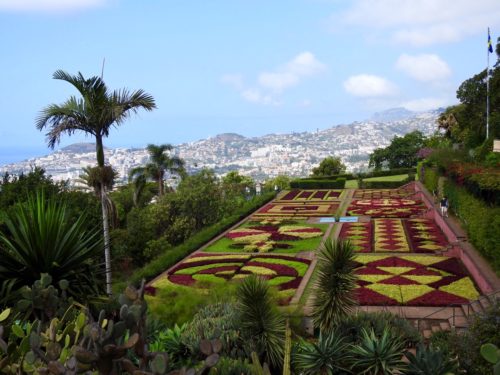
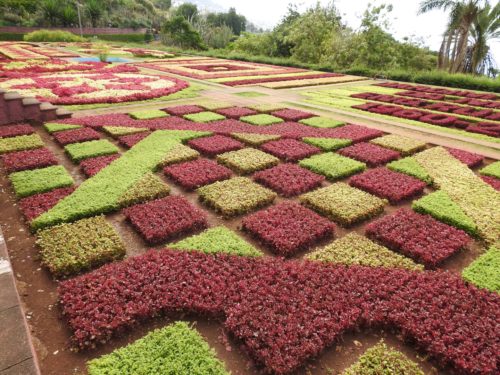
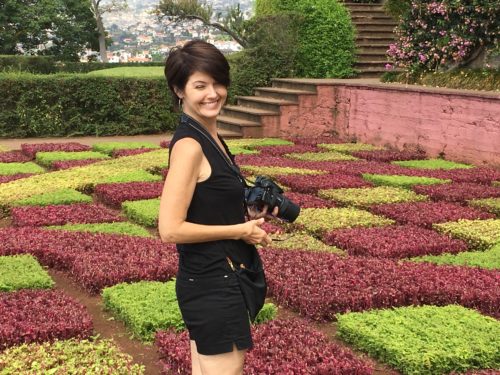
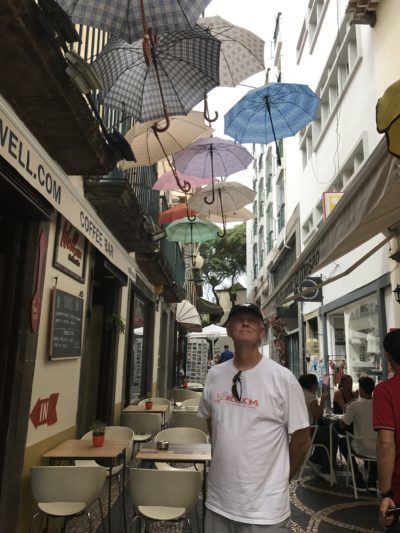
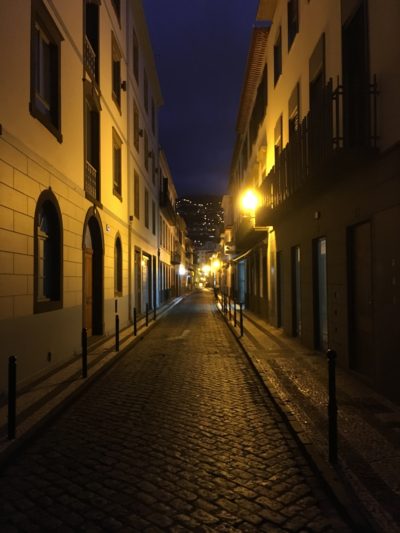
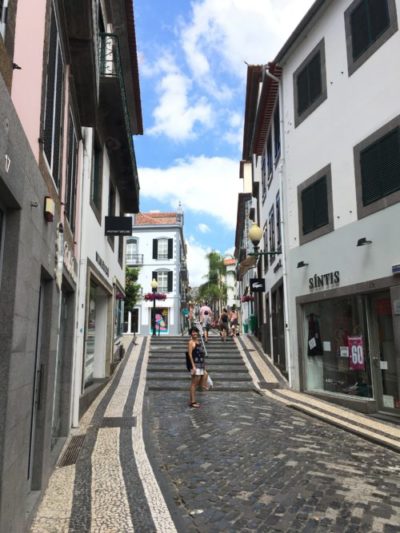
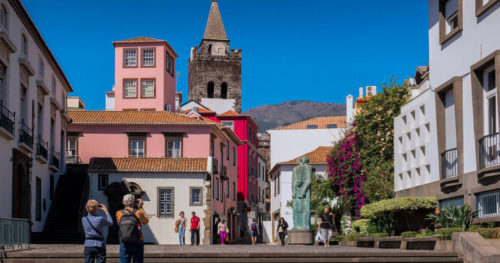
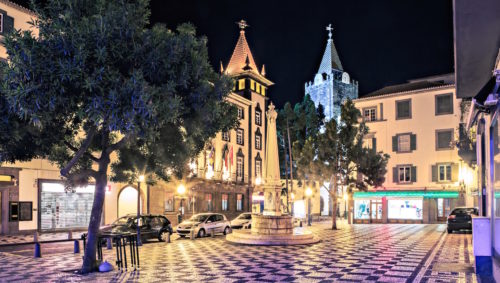
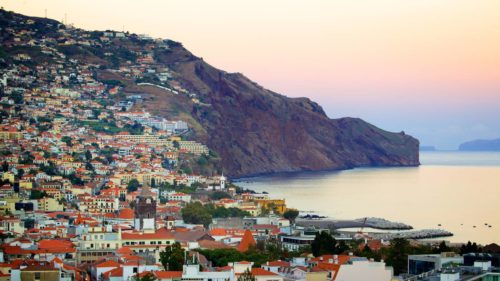
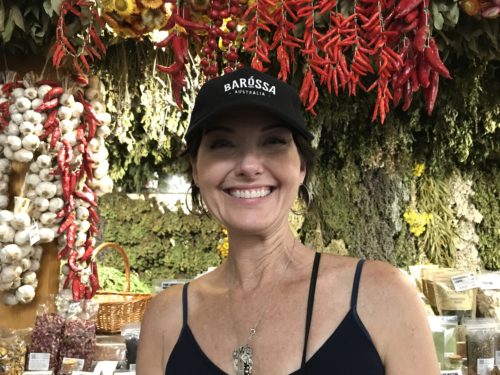
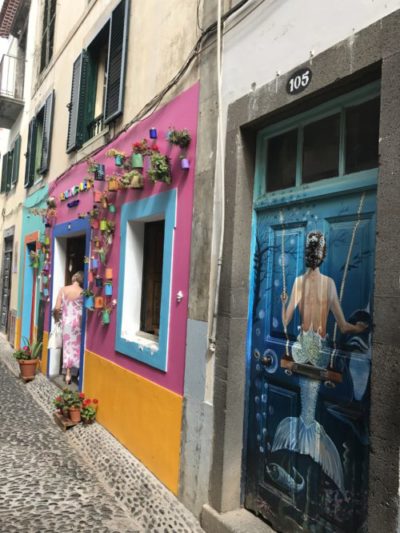
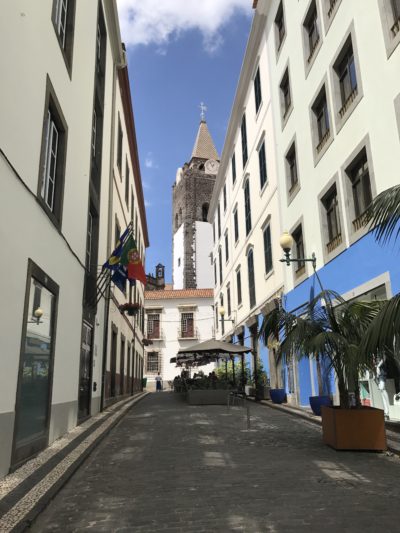

And saving the most beautiful for last…
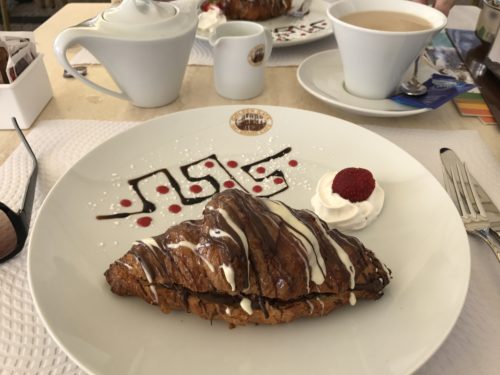
Funchal, Madeira: Poncha packs a punch
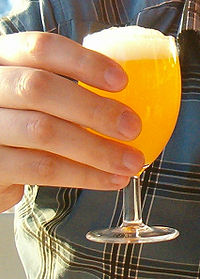
We had a great cab driver on the ride from the airport to our hotel in downtown Funchal. His name, of course, was João, because all Portuguese men are named João.
I say he was a great cab driver because of his tremendous enthusiasm for his home island. He was better than most tourist guides and told us to make sure we tried four Madeiran specialties while we were here. We tried them all:
Bolo de Caco. Mmmmm.
Espetadas (Madeira-style meat skewers). Mmmmm.
Milho frito (fried corn cakes). Mmmmm.
Poncha. Uh-oh.
I’m not much of an alcohol drinker, but we had tried the cab driver’s other three recommendations with great success, so we bought a couple small plastic bottles of Poncha. One for each of us. What the hell — when in Madeira, do as the Madeirans.
I consumed my small bottle and must admit that it caused me to exhibit some public behavior that may have embarrassed Jamie. But that is neither here nor there and the story is probably not fit for this blog.
But after drinking this devil liquid, this água do demônio, I wanted to know more about it, so I went to the world’s source authority on all subjects.
Here’s what Wikipedia.com had to say:
“Poncha is a traditional alcoholic drink from the island of Madeira, made with aguardente de cana (distilled alcohol made from sugar cane juice), honey, sugar, lemon rind and with different fruit juices according to the version of poncha, but traditionally lemon juice is used.”
And now pardon me while we veer off into another of those tangents regular readers have come to expect:
A few months after my first attempt to retire from advertising, I received a phone call from Rick Reiff, the editor of the Orange County Business Journal.
“You’re too young to retire and you’re probably bored already, and I just lost my marketing columnist,” Rick said. “So how would you like to be my substitute marketing columnist until I can hire a new one? I’ll give you complete freedom to write anything you want and I will only edit you for spelling and grammar.”
Sounded fun, so I signed up with Rick and the OCBJ.
We also set up an unusual deal for payment. They compensated me with advertising space. I received one column inch per week (for the non-advertising folks, that means the ad was one inch high and one column wide). I then created tiny little ads that ran at the bottom of my marketing column each week and promoted my freelance advertising creative services.
When you do an ad that small, you’re forced to be very creative or the ads will be ignored. So I worked very hard (adios, retirement) to create funny headlines that would grab people’s attention. I did a different headline each week just to keep it fresh and interesting and to keep readers coming back for more. Anything that came to mind was fair game.
One week I did an ad that said:
Psychologically speaking,
I think all my problems are
caused by the fact that
I have a small d.
I was, of course, referring to the unusual lower case “d” with which our last name begins. But if readers were to infer something else from the headline, well, that’s where the humor came from.
I’m very proud of that small space ad because it generated lots of phone calls and comments and laughs.
But why am I telling you this story now?
Because I did not quote Wikipedia’s full description of Poncha. Here’s the rest:
“It is mixed together with a mixing tool created in Madeira officially called a mexelote but more commonly known as a caralhinho (little cock).”
So it’s not bad enough that I have problems caused by my small d. Now, thanks to Madeiran alcohol, I also have a little cock.
Sigh.
Funchal, Madeira: Toboganning down the hills of Madeira
You normally associate toboggans with snowy winter climes, not tropical islands. But people have been tobogganing down the hills of Madeira since 1850 or so.
These toboggans originally transported Madeirans from the uphill town of Monte down to seaside Funchal. But today these death machines exist solely to scare the hell out of tourists who pay good money to speed down the island’s narrow, winding streets. These two-seat wicker sleds slide downhill on wooden runners, steered by two “drivers” who dress in traditional white cotton shirts and pants and straw hats. Believe it or not, they use their rubber-soled boots as brakes (I can’t imagine that a pair of their shoes lasts more than a week or two.)
The hair-raising downhill trip takes about 10 minutes and can reach a top speed of about 48 kilometers per hour.
When we left on our ’round the world trip two years ago I wrote a blog item that listed some of the things I wanted to experience before I get hit by a truck.
Now that we’ve flown downhill on one of Madeira’s toboggans, I can check one of those goals off my list.
We did a video of our toboggan ride, but the file is too large to download, so you’ll need to make do with a YouTube video of someone else’s ride.
But here’s a selfie of us and our two “drivers.” Note that the driver on the left is so blasé about flying down the hill at 48 mph that he’s actually posing and smiling for the camera.
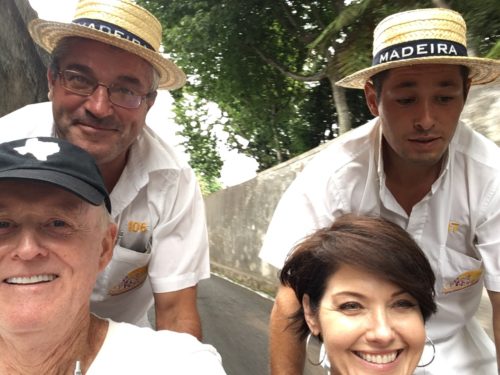
Funchal, Madeira: Squeeze box
You see a lot of guys playing accordions on the streets of Portugal, but this guy was special. He had a great, outgoing personality. He had a special hat for Jamie to wear while I took a photo. And instead of playing traditional Portuguese music, he seemed to specialize in music from America western movies.
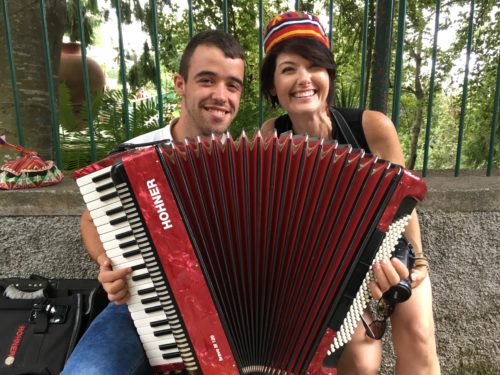
Funchal, Madeira: The sidewalks of New York Funchal
We thought the sidewalks and squares of Lisbon were amazing, but they may be outdone by the sidewalks here in Funchal. Every street and square seems to have its own unique mosaic pattern. And we never tire of finding new ones.
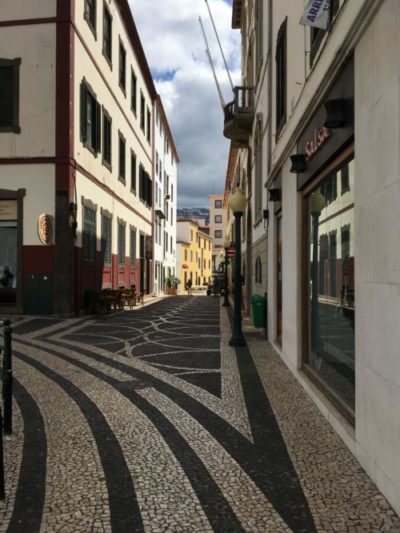
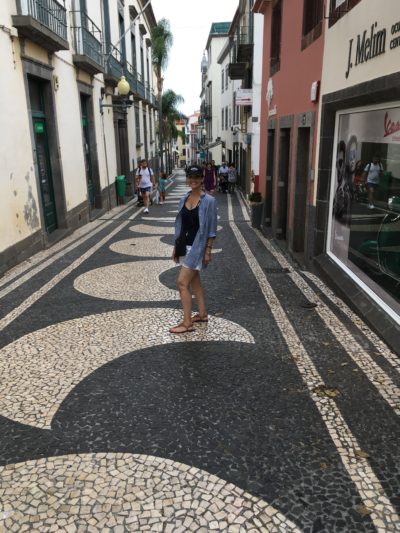
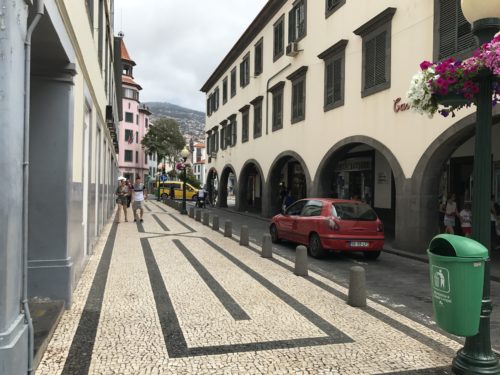
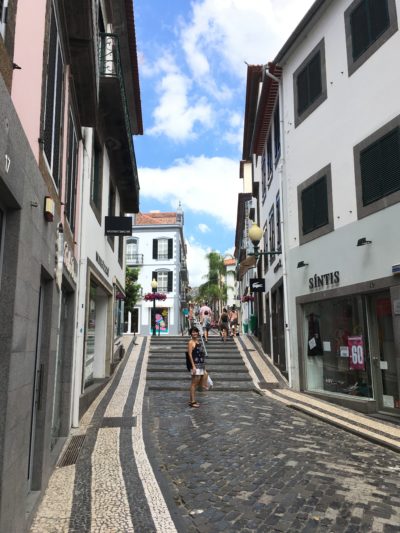
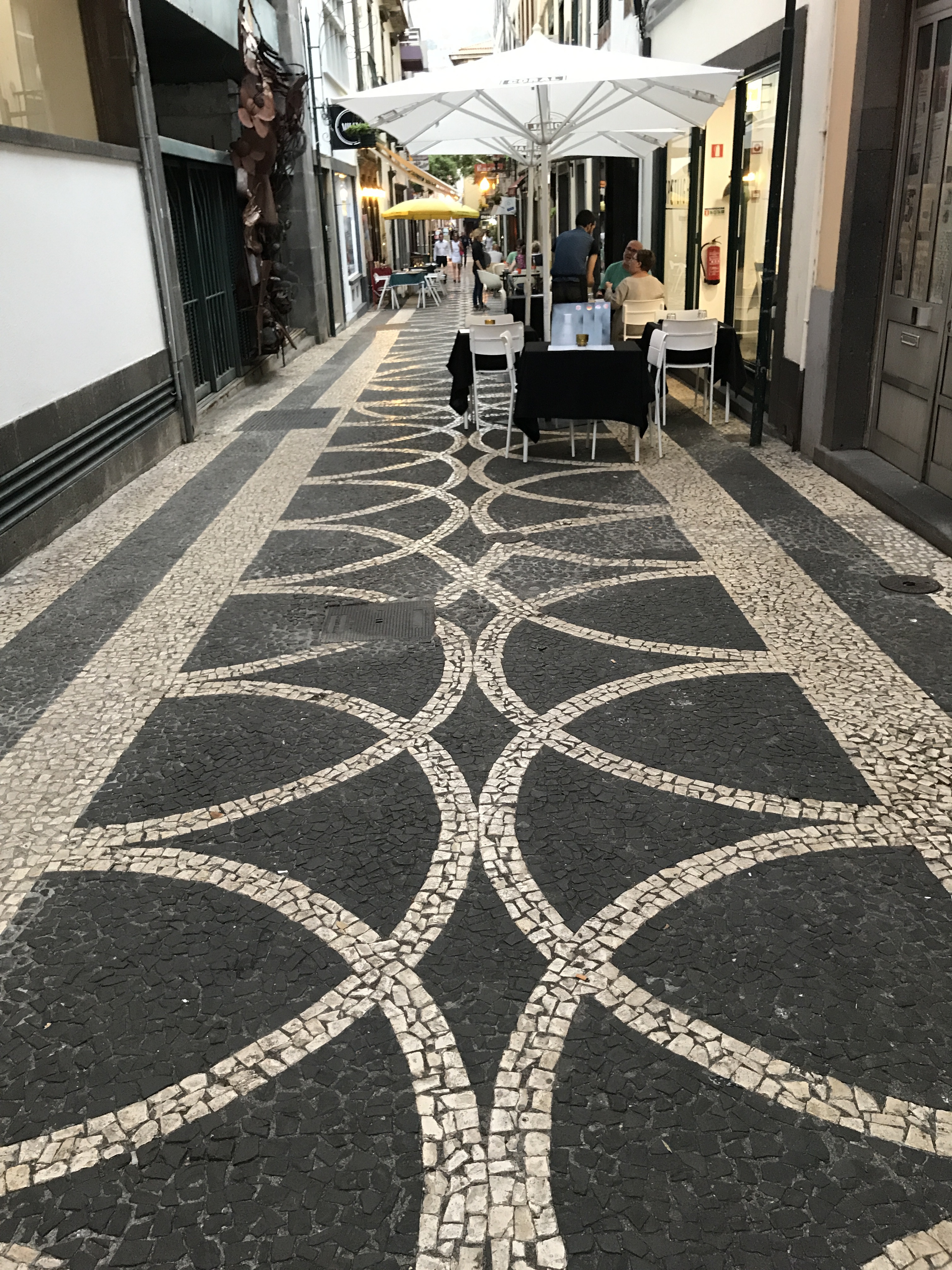
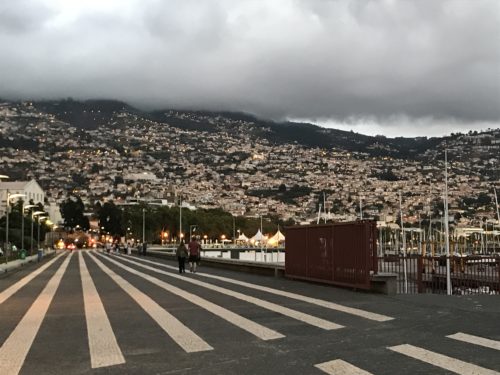
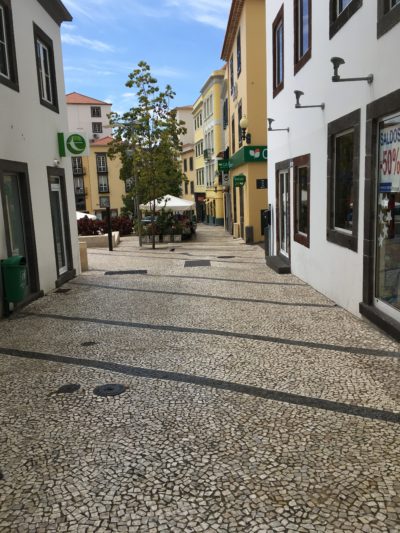
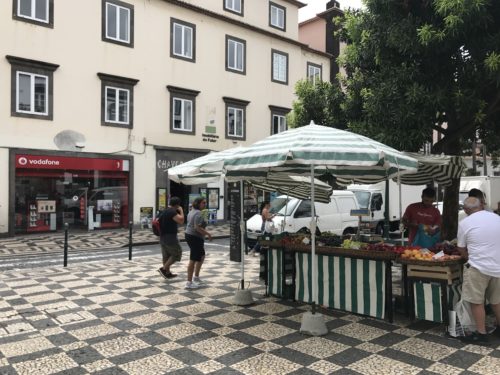
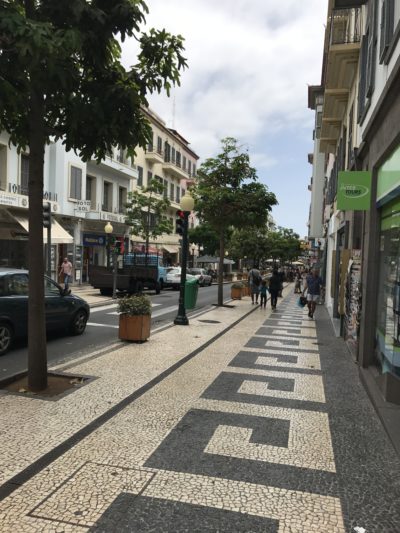
This next one is not exactly “Where’s Waldo?”
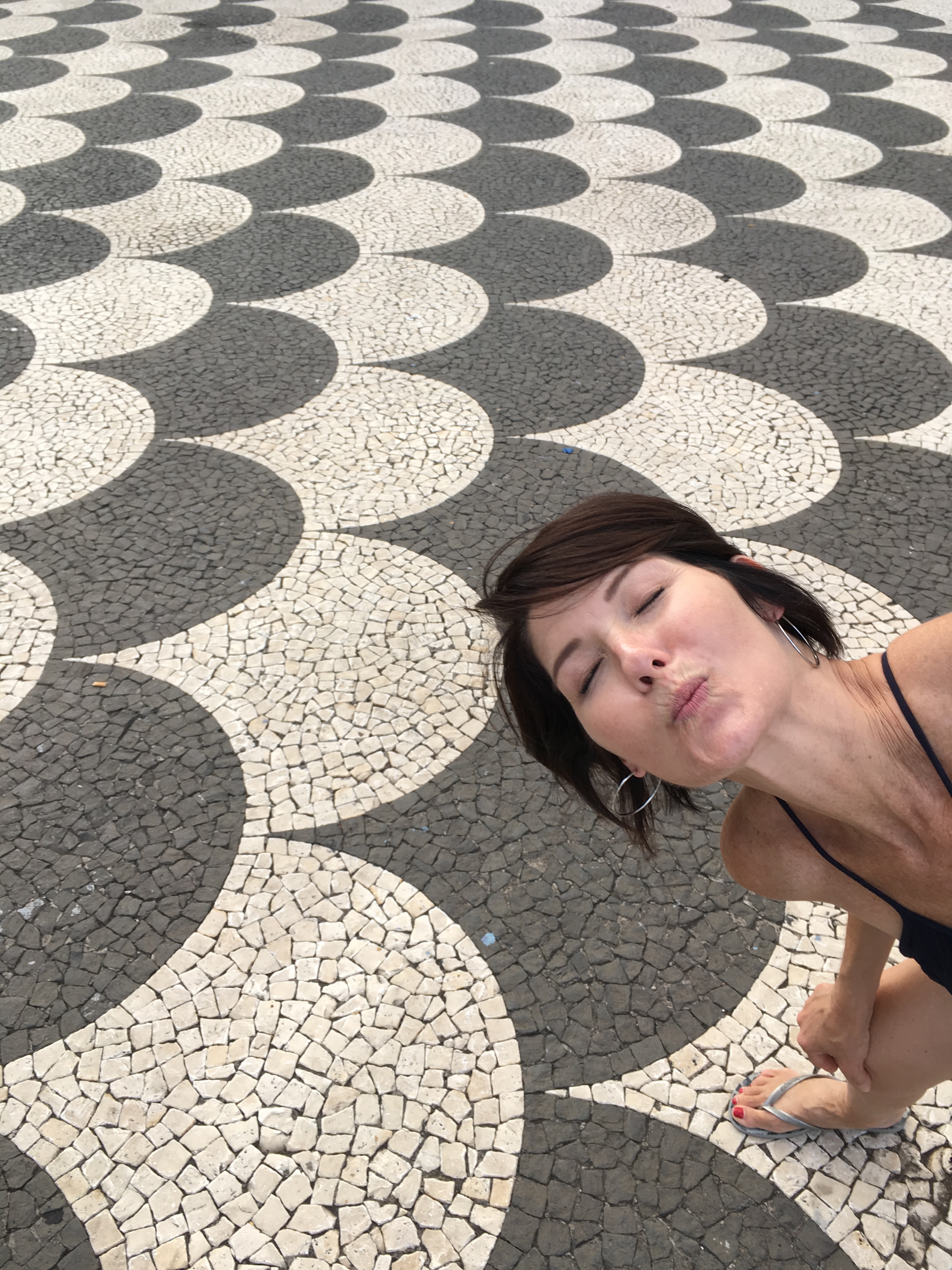
Funchal, Madeira: We love Madeira. But where the hell is it?
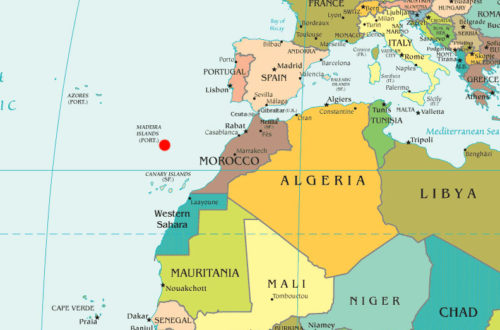
We did a brief survey of our friends. Only a handful had ever heard of Madeira and just one had ever been here (so it makes sense that she was also the only one who knew how to find it on a map).
Let’s start off with the basics: Portugal is the country. Madeira is the island. Funchal is the city.
Madeira is 310 miles from the African coast and 620 miles from the closest point in Europe.
It was discovered by Portuguese sailors in 1419 and that country has owned it ever since.
It is now a very popular year-round resort and draws about one million tourists (nearly four times the island’s population).
We absolutely LOVE, LOVE, LOVE Madeira. But we’ll tell you more about that in other posts.